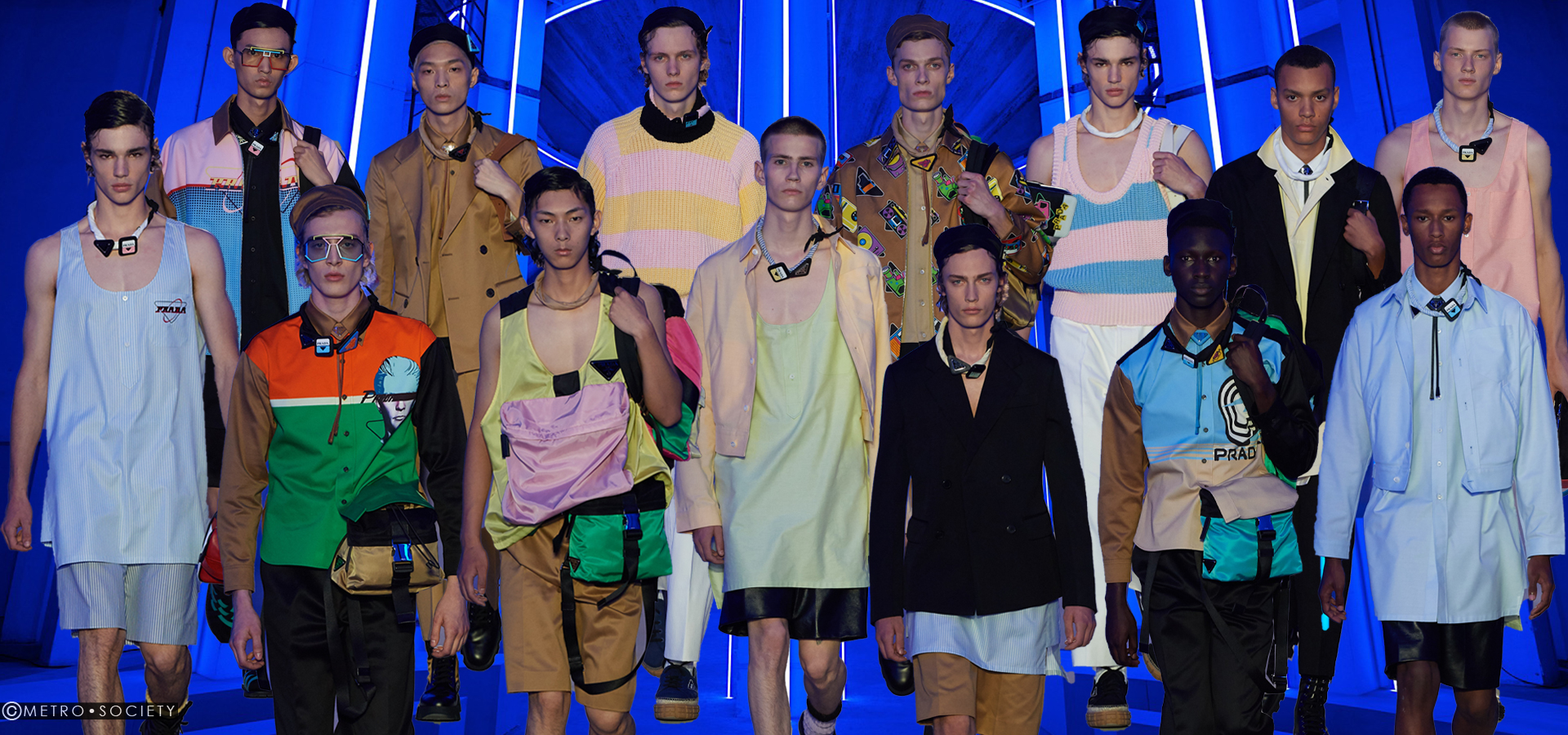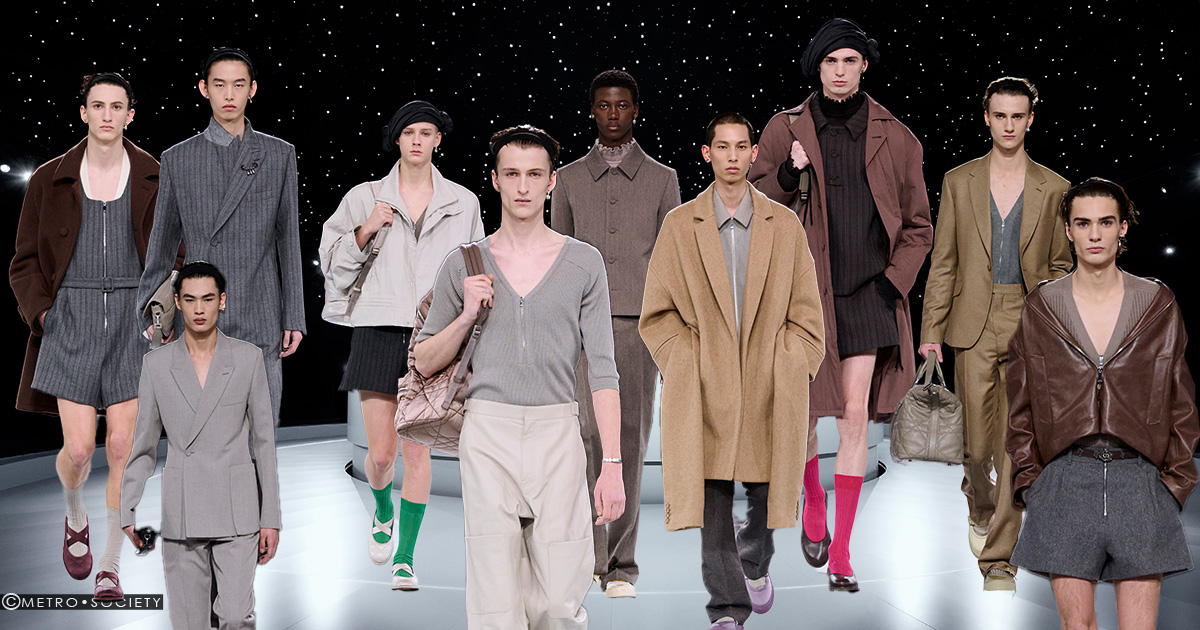PRADA #SS20
• Spring/Summer 2020
- March 4, 2020
-
 27,347
27,347
A power of energy, provocation and freedom. The Prada Spring/Summer 2020 men’s collection is animated by a spirit of confidence, of enjoyment, of boundless positivity and possibility. The spirit allows a transgression with and through elegance, exploring the meaning of clothes.
Classics are decontextualised, an evolution of a concept explored in the 2020 Prada Resort collection. Transgression is quiet, optimism posed as an alternative to actuality, utilising contrast and colour to reconfigure. Duality permits the conservative to become rebellious, youth to appear newly sophisticated.
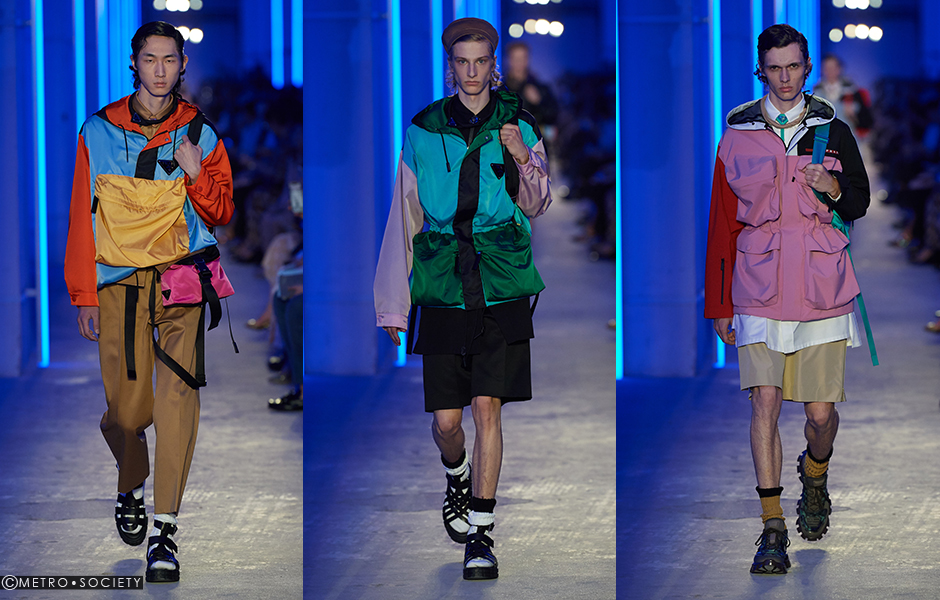
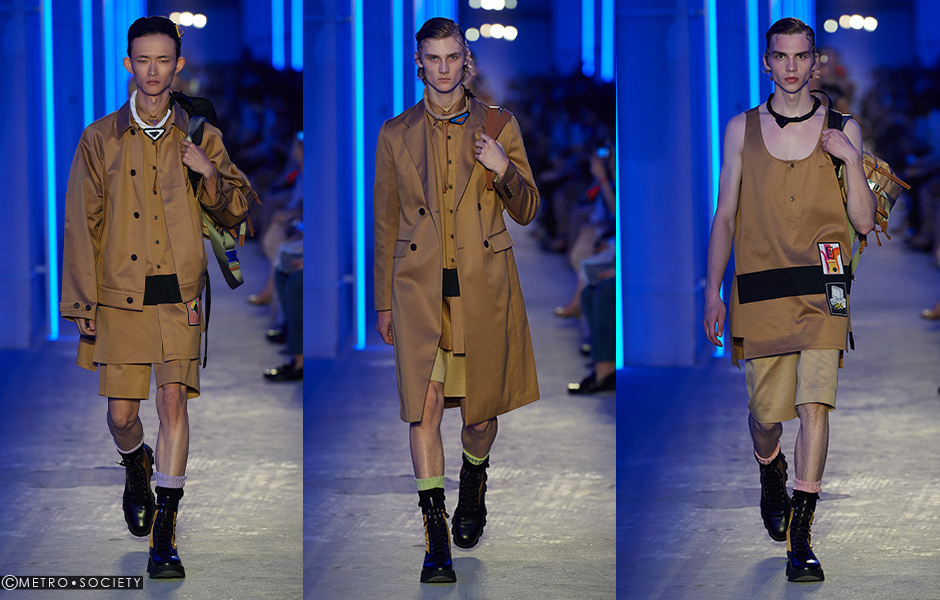
An interplay of proportions, a play on scale, playful. Differing lengths are layered in various garments, creating an arresting affect against the body and challenging the form language of pieces. The eye is encouraged to reappraise: an elongated shirt can readdress the line of a tailored jacket; resolutely proletarian polo shirts and sweatshirts are given macro volume, reality distorted. They force a reconsideration of the body inside.
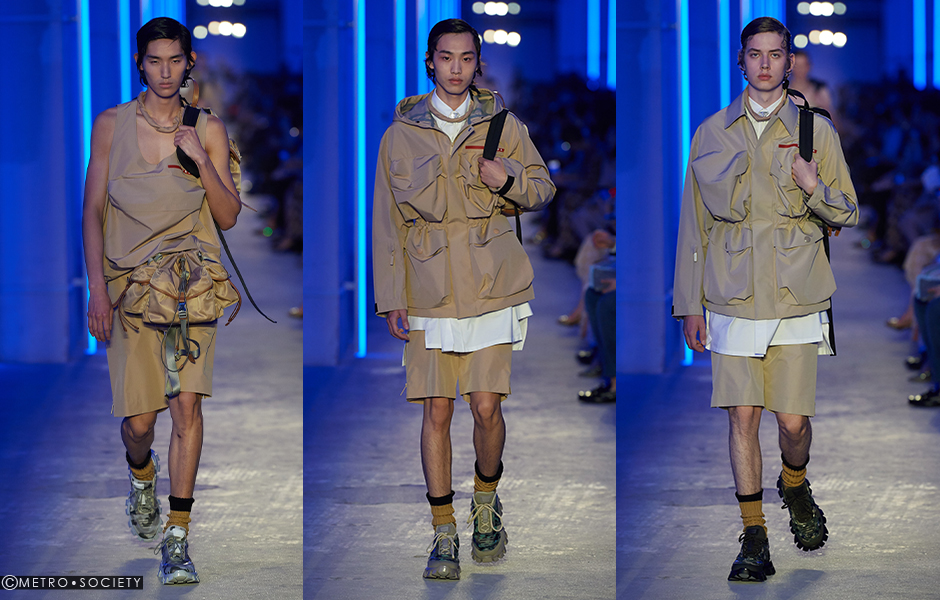
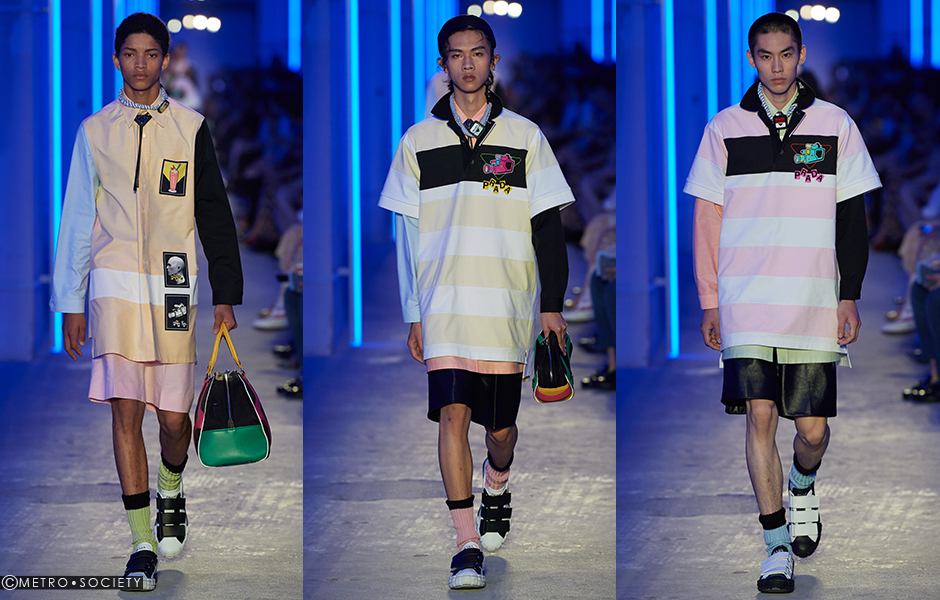
Color is pure, potent - an empirical means of galvanising appearance. The spectrum is sunny, vibrating with life, comprised of sweet new soft neutrals, soothing pale colour alongside khaki, black and synthetic hypercolor. Juxtapositions again provide energy: sartorial emblems of popular culture mixed with those of high, sleek tailoring shown alongside sports. The notion of exploration and pioneering is underlined with a series of uniform khaki looks with badges and patches placed like abstract trophies.
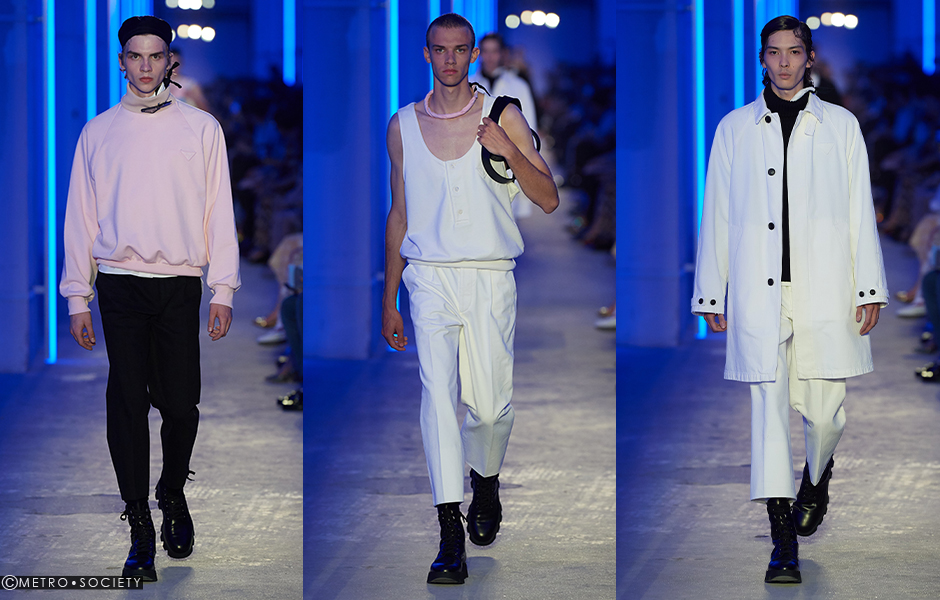
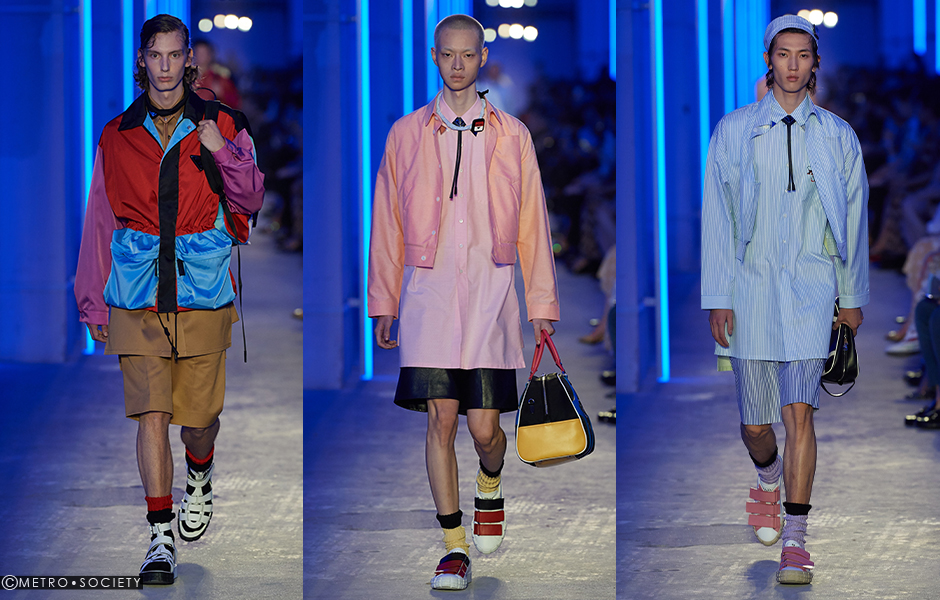
Technology has become a fetish. Symbols of lo-fi, outmoded tech - cassette tapes, video cameras - are used as insignia, purely decorative having outlived their age and use; the Prada logo is remixed with retro-futuristic mood, imagined new as it may have been in the past.
Shown within a vision of the future in the city of Shanghai, this collection rebels against those confines. The romance of history is a form of transgression: its memory can be a rebellion. Looking backwards, looking forwards, ever-changing.









